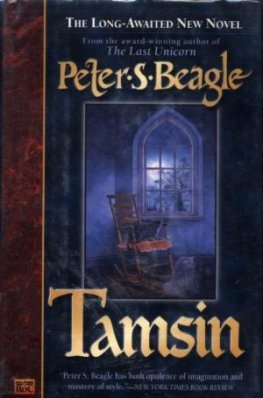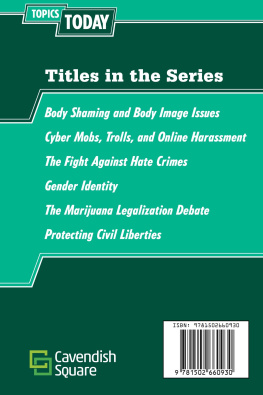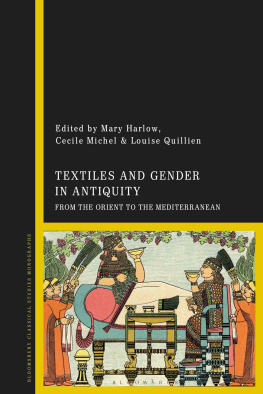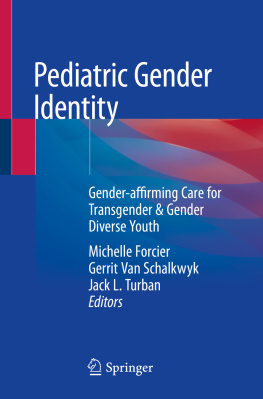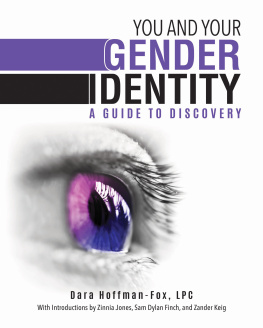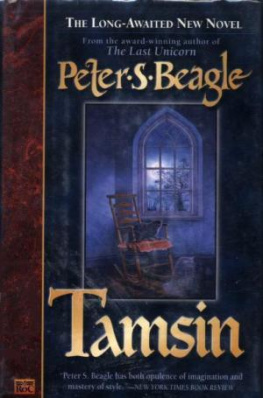Gender, Identity, and the Production of Meaning
Feminist Theory and Politics
Virginia Held and Alison Jaggar, Series Editors
Gender, Identity, and the Production of Meaning, Tamsin E. Lorraine
Rocking the Ship of State: Toward a Feminist Peace Politics, edited by Adrienne Harris and Ynestra King
Reproducing the World: Essays in Feminist Theory, Mary O'Brien
Sexual Democracy: Women, Oppression, and Revolution, Ann Ferguson
Gender, Identity, and the Production of Meaning
Tamsin E. Lorraine
First published 1990 by Westview Press
Published 2018 by Routledge
52 Vanderbilt Avenue, New York, NY 10017
2 Park Square, Milton Park, Abingdon, Oxon OX14 4RN
Routledge is an imprint of the Taylor & Francis Group, an informa business
Copyright 1990 by Taylor & Francis
All rights reserved. No part of this book may be reprinted or reproduced or utilised in any form or by any electronic, mechanical, or other means, now known or hereafter invented, including photocopying and recording, or in any information storage or retrieval system, without permission in writing from the publishers.
Notice:
Product or corporate names may be trademarks or registered trademarks, and are used only for identification and explanation without intent to infringe.
Library of Congress Cataloging-in-Publication Data
Lorraine, Tamsin E.
Gender, identity, and the production of meaning / by Tamsin E.
Lorraine.
p. cm. (Feminist theory and politics)
Includes bibliographical references.
ISBN 0-8133-7877-X ISBN 0-8133-7878-8 (pbk.)
1. Sex role. 2. Identity (Psychology). 3. Lacan, Jacques, 1901
4. Sexism in language. 5. Discourse analysis. 6. Feminist
criticism. I. Title. II. Series.
HQ1075.L67 1990
305.3dc20
89-77271
CIP
ISBN 13: 978-0-367-01357-8 (hbk)
I had two questions in mind when I wrote this work. One concerned the various ways in which women have been silenced by men and the other was why women have allowed themselves to be silenced. There are many answers that feminists could and have given to both questions. I plan to consider these questions as they relate to the human need to create and maintain self-identity in a social context. My contention is that self-identity is a much more complex affair than we might want to think not only are we born without any sense of self we can call our own, but we are continually having to recreate our self-identities in the face of a chaotic influx of sensation that threatens to sweep us away. A person may think her sense of self is intactan unproblematic givenbut think how it would feel to wake up to find that everyone you knew had left town and strange aliens had arrived to take their places. You would be the same person, even have the same memoriesbut how long would you be able to retain the identity you had before waking up that morning? And by what kind of process would you manage to retain any sort of continuity between your old identity and any new identity you might form?
Questions like these in the context of the work of such diverse feminists as Nancy Chodorow and Luce Irigaray on differences in gender identity raise the possibility that there might be something about the process by which we construct and maintain a sense of self that would explain a "masculine" need to silence women in certain ways and a "feminine" need in keeping with being silenced. This intuition is further borne out by feminist literature that examines the role of woman as "other." It is often said that men tend to have an easier time seeing themselves as subjects and seeing women as relative to themthat is, as their "other" rather than as subjects in their own right, whereas women tend to have an easier time seeing themselves as that "other." If this is so, could we account for these tendencies by pointing to differences in the ways that men and women construct and maintain their self-identities?
In this work I articulate an open-ended theory of self that delineates "masculine" and "feminine" self-strategies on the basis of the Hegelian tradition of theorizing self/other relations, psychoanalysis, and contemporary feminist theory. Far from supposing that I have captured anything essential to either masculine or feminine identity, I propose this theory as a tool for further exploring gender distinctions. I argue that selves can be maintained through the meaning produced in a subject's words and acts, and I use the two self-strategies I have characterized as interpretive tools to explore three philosophical texts. The texts I selected are all written by male philosophers. I suggest that the constraints placed on these philosophers by their own conceptions of themselves as men produce conflicts in their texts stemming from conflicts in their use of self-strategies. If these philosophers had been able to go beyond the conceptual barriers presented by their particular versions of a masculine identity, they might have been able, by varying the self-strategies they used, to resolve certain puzzles confronting them.
The possibility that the gender-differentiated self-strategies I propose could be combined in different ways underlies my intention in proposing them. I do not present these "masculine" and "feminine" strategies as indicative of all or even most men or women. In fact, it would be quite in keeping with the theory proposed here if the two self-strategies were characterized in completely different ways contingent upon places, times, and groups of human beings that are different from those explored here, I hope that some women and men may read, and recognize themselves in, the self-strategies described here and perhaps be moved to break through some conceptual barriers of their own. But these self-strategies are meant to be tools in the exploration of how varying conceptions of gender categories inform the way we think and act, rather than to provide definitive descriptions of differences beween men and women. These seif-strategies thus have relevance for people who can understand themselves better through themand for the philosophers that I explore here.
I hope that exploration of gender distinctions in self-constituting activity and of the relationship between the two will reveal some of the reasons for the anxiety created by women's attempts to change the status quo. Although it may be self-evident that men do not want to relinquish power, it is possible that an individual's deep-seated fear of being stripped of his/her ability to maintain a self is also an anxiety-producing factor. Articulating one story about these strategies will enable us to become more aware both of such strategies (however they may be described) and of their importance to our survival as social subjects. This awareness, in turn, will allow us to construct social theories for change that are more likely to succeed because they take the human need to maintain self into account.
I would like to express my gratitude to all the people who have inspired and encouraged, both directly and indirectly, this work. Specifically, I would like to thank the Alternative Track of the Philosophy Department at the University of Massachusetts, Amherst, the Amherst Feminist Theory Study Group, the Society for Women in Philosophy, and the Amherst Circle for giving me the courage and the support to pursue the themes I explore here. I would also like to thank Robert Paul Wolff and Cynthia Freeland for reading earlier drafts of this work and giving me helpful criticism and advice. The feedback I obtained from audiences that heard various parts of this book was also invaluable: My thanks go to Mark Taylor and the audience of the Science and Society and the Other Kierkegaards Conference at the University of Massachusetts in 1988, to the audience members at the Society for Women in Philosophy Conference at the College of the Holy Cross in 1988, the members of the Sofphia meeting at SUNY, Albany, in 1989, and the Friends of Minerva meeting at Rollins College in 1990. I would particularly like to thank Alison Brown and Cynthia Kaufmann for their stimulating support, and Chris Bresnahan and my sister, Shawn, for their unflagging belief in me.




